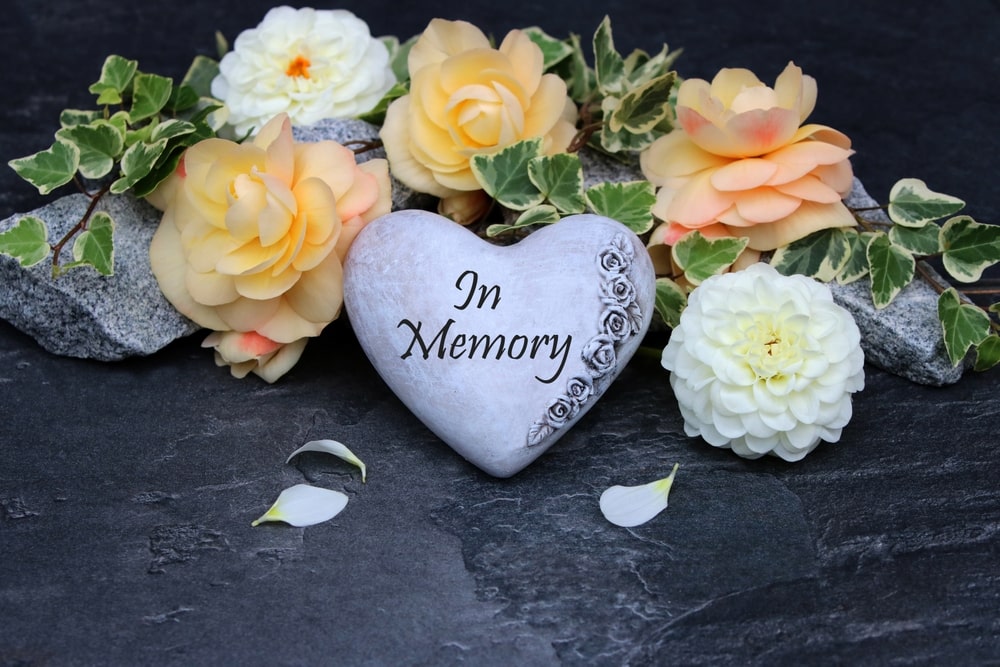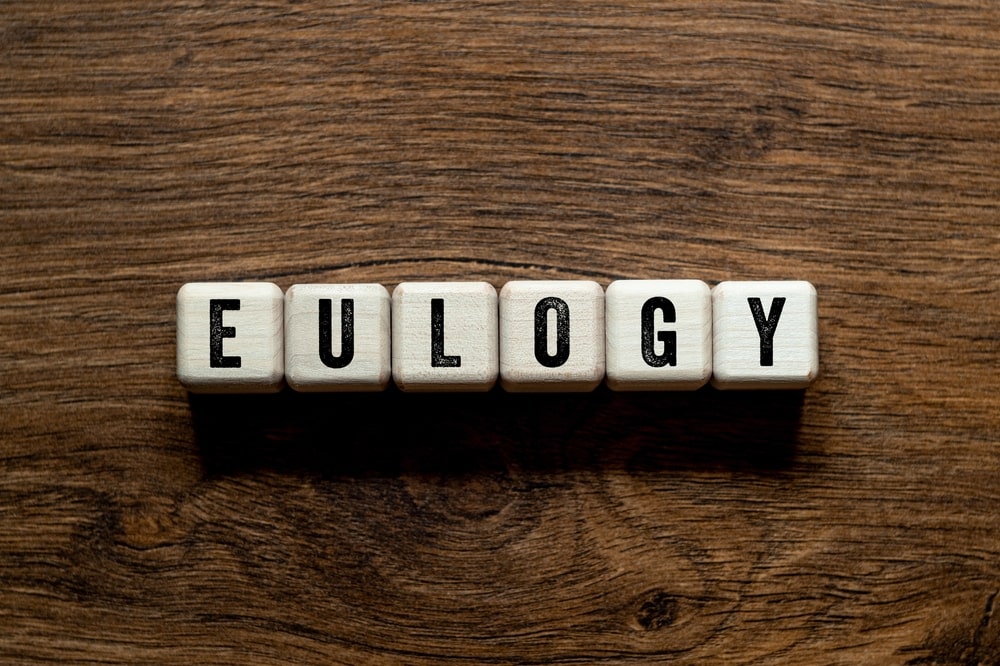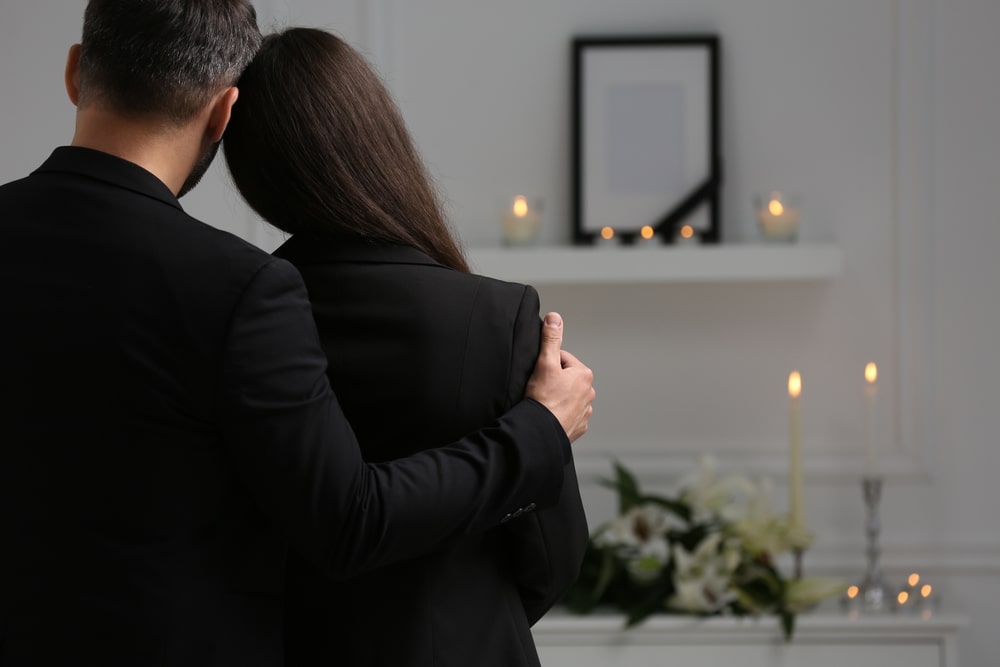The eulogy plays an important role in the funeral by highlighting the legacy the deceased left behind. It serves as a time of reflection and helps everyone grieve together. If you’ve been asked to write a eulogy at a funeral or memorial service, you may not know where to start, and that’s okay!
While every eulogy looks different and there isn’t a specific outline you need to follow, there are a few mistakes to avoid when putting together a eulogy.
1. Reading the obituary
The obituary and the eulogy may touch on similar topics, but they play very different roles. Instead of just reading the obituary at the service, use it as a starting point. Include some biographical information in the eulogy, but focus more on telling stories about the deceased and sharing memories.
2. Forgetting to confirm facts
One of the most important steps in writing a eulogy is confirming the facts you plan to share. You don’t want to say that the deceased grew up in New York if they actually grew up in Chicago! Double and triple-check your facts, and get someone else who knows the deceased well to review what you’ve written.
3. Preparing without feedback from others
When writing anything, getting a second (or third or fourth) opinion is always good! Share your eulogy with another person and get their feedback about how it sounds. They can let you know if any information needs to be corrected or if some wording sounds insensitive. Plus, they may be able to give you ideas of other stories you can add to better highlight the deceased’s life.
4. Neglecting to practice

Writing the eulogy is only the first step; how you deliver it is just as important as what you say. Before the service, make sure to practice giving your eulogy. You can read it in front of the mirror to practice making eye contact and looking up from your paper. It’s also a good idea to practice giving your speech to others to get their feedback on your delivery.
5. Making it too formal
While writing, remember that you’re working on a speech, not an essay. Eulogies should be casual and personal, not too formal. Read what you’ve written out loud and see how it sounds. Do you sound like you’re talking to your friends and family or giving a formal presentation? Keep your wording informal and avoid complicated or confusing words.
6. Listing facts instead of telling a story

Typically, eulogies are under 10 minutes long. That’s not a lot of time to sum up someone’s life! Instead of listing facts about the deceased, choose a few significant stories that show the kind of person they were. If your loved one was patient, do you have a specific memory that showcases their patience? If they went out of their way to make people comfortable, do you have an example you can share? Stories will always be more engaging to the audience than a list of facts.
7. Sharing embarrassing or private details
While stories about you or the deceased embarrassing yourselves may bring you comfort as you cherish your memories with them, a eulogy isn’t the place to share them. You also shouldn’t reveal things that were told to you in confidence or share awkward, personal, or inappropriate information about the deceased.
8. Getting too specific about the death

Eulogies are meant to highlight the legacy someone left behind and the life they lived. While it’s okay to mention the deceased’s death, try to avoid going into too many details, as that could be a trigger for the grieving family. It’s especially important not to discuss details of a sudden or traumatic death, like those due to car accidents, suicide, or homicide.
9. Airing grievances
If you’ve been asked to give a eulogy for someone you didn’t get along with or who had a negative impact on your life, keep your grievances out of the eulogy. A funeral isn’t the place to announce that the deceased owes you money! While you don’t want to lie and say someone was a great person if they weren’t, look for positive aspects of the person you can focus on instead. And, if you find yourself unable to create a positive eulogy, consider declining to give the eulogy or ask someone to help you edit yours.
10. Using inappropriate humor

Including jokes in a eulogy is perfectly fine, especially if the deceased had a great sense of humor and the jokes fit their personality. But be respectful and avoid jokes that insult the deceased or make light of the death or the family’s grief. Keep in mind that there may be children at the service, too. If you’re unsure about a joke, run it by a discerning family member first.
11. Taking focus away from the deceased
A great way to highlight a loved one’s legacy in a eulogy is to talk about your memories of the deceased. But while talking about your relationship with them, keep the focus firmly on the person who has died. Don’t make the eulogy all about yourself or drift into unrelated topics, especially controversial topics like politics or social issues.
As you put together the eulogy, don’t stress too much about trying to make it perfect. Get feedback from those around you and share the impact the deceased made on your life and the lives of everyone around them. As long as you are respectful and thoughtful, your friends and family will appreciate your words.





